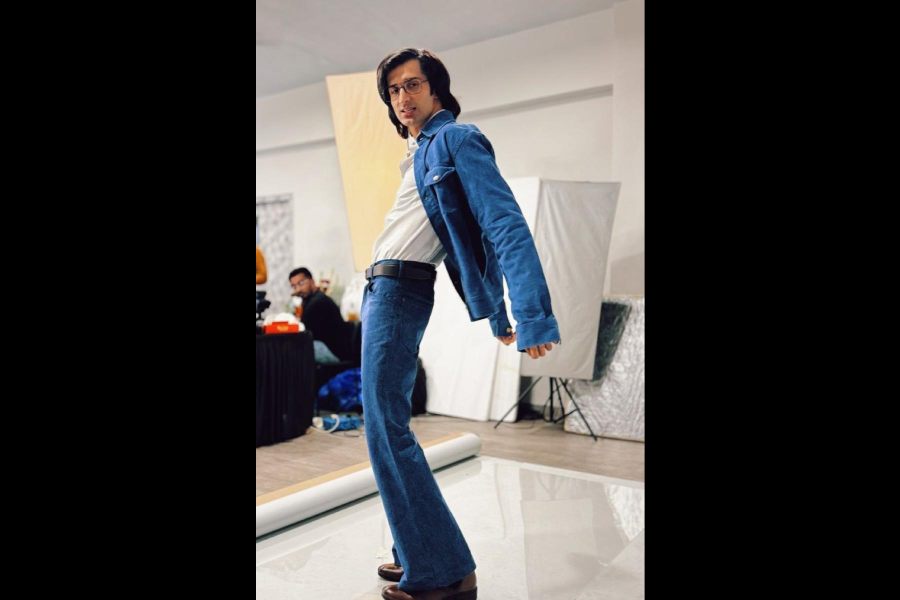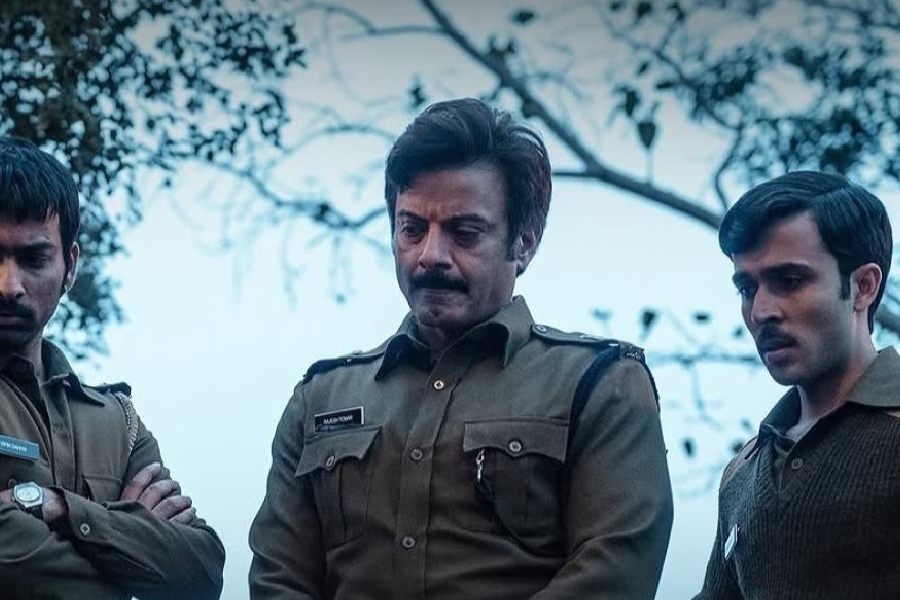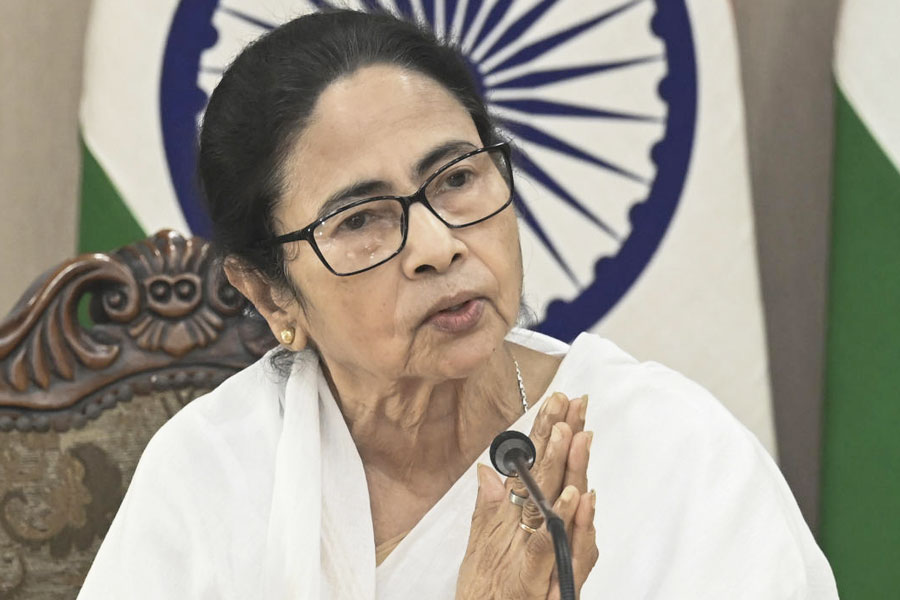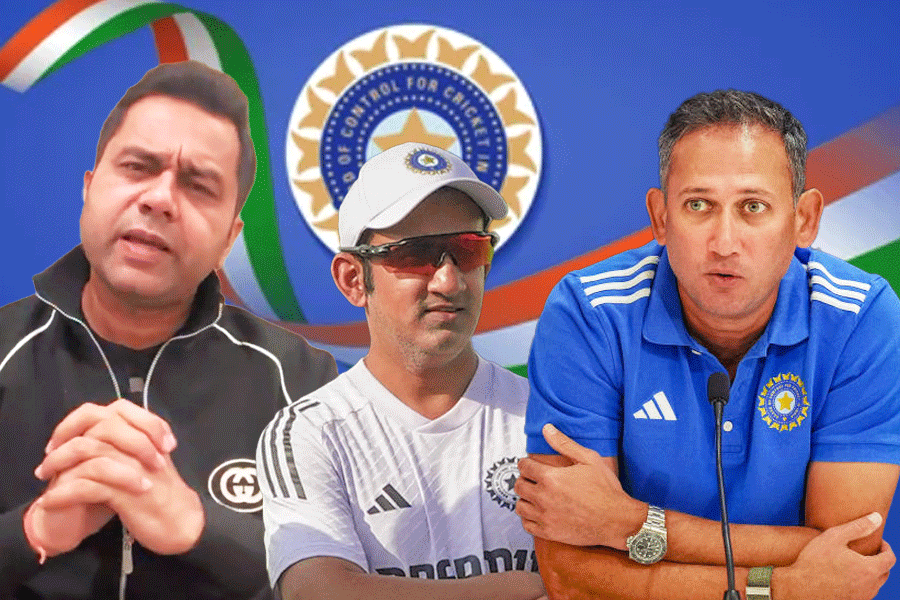Black Warrant — an insider’s perspective on life (and death) inside Tihar Jail, based on the real-life account of its protagonist — has met with unanimously positive reviews and audience acclaim. Created by Vikramaditya Motwane and based on the book Black Warrant that chronicles former jailer Sunil Kumar Gupta’s three decades in Tihar, the Netflix series kicks off the year on a promising note.
Reason enough for t2 to catch up with Zahan Kapoor (who plays Gupta), Rahul Bhat (who plays Gupta’s boss Tomar), Sidhant Gupta (who brings Charles Sobhraj to life) and Anurag Thakur (as Sunil’s contemporary Dahiya) for a chat.
Congratulations on the success of Black Warrant! What’s the best thing you have been told about the series and your respective performances so far?
Zahan Kapoor: Tillotama Shome (actor) told me the loveliest thing. She said: ‘I could feel his (Sunil Kumar Gupta’s) heartbeat’. It is a beautiful description of feeling connected to a character and his journey.
Anurag Thakur: Tillotama told me the nicest thing too. After the screening, she said: ‘Thank you for the character (Dahiya). You have a childlike innocence in your eyes, even though you (Dahiya) are a part of that world. I want to see more of you on screen’. That is a compliment that has stayed with me.
Sidhant Gupta: It is the weirdest thing anyone can say but it makes total sense in the context of my character (Charles Sobhraj). A critic wrote: ‘I don’t know what Sidhant Gupta is doing (playing Jawaharlal Nehru and Sobhraj in back-to-back shows), but it is great’. That, in itself, is a victory for me. It is also a victory for the character because you cannot understand him, even now. He (Sobhraj) remains an enigma that cannot be understood.
Rahul Bhat: So many people have said that this show doesn’t follow the regular formula of a series... there are no hook points, nor does it have the so-called trickery that comes with a certain kind of storytelling. It is also not judgmental and is balanced, it has a lot of attention to detail. It is an honest show, and I find a lot of people saying that. That is not only a big compliment to the makers of the show but also to us actors. A show is good only if everyone is good.

Sidhant Gupta as Charles Sobhraj
Anurag Kashyap (filmmaker) is very honest and he won’t call you unless he thinks you have done a really good job. He told me: ‘You are the cherry on the cake’. When I told him to elaborate, he was like: ‘Arre yaar, achha kiya tu ne!’ (Laughs) I am happy with the kind of success that Black Warrant has met. It is a different kind of joy. When a person is thirsty for a long time and someone gives him a glass of water, it feels very good....
But Rahul, you have done some stellar work over more than two decades now. You really can’t complain...
Rahul: Stellar work is one thing, but to be part of a successful project is different. It is its own kind of fun. I have done very good films, I have worked with great directors and I am very proud of what I have done. There are no regrets. I am very happy. But nothing succeeds like success, as they say.
Even though the show operates in a different space and time, did you identify with any aspect of your respective characters, even if it is a man like Sobhraj?
Sidhant: I have always known myself to be a sensitive person who is very attached to my emotional being. But while playing Sobhraj, I had to suppress that emotional side into a dark corner and lead with something else. That is the beauty of this job... you figure so much of what is going on inside you, and it is all unexplainable. It can only be fed through character.
Rahul: Tomar is a little stupid, I am a little stupid (smiles). Nonsense is common between us. Everything else is different.
Zahan: I admire Sunil’s compassion, honesty and perseverance.
What is the most unsettling aspect about life in Tihar Jail that surprised you?
Zahan: That would be the idea of carrying out capital punishment and that, at the end of the day, you (as a prison official) get lumped with the responsibility to walk a fellow human to their ultimate place, and much further away from the context of their crime. The system chooses to punish them and you are put in a position that requires you to enable capital punishment. I would not wish anyone to have that experience.
But it is remarkable to see how the real Sunil Gupta has maintained a lightness of being and a certain sincerity despite the burden he had to carry. His ability to be compassionate and mourn through it without attaching himself to it, is commendable. If you suppress it, perhaps it will eat you up. There is a great lesson there somewhere for all of us.
Rahul: What shook me is that there are so many people — many of them pretty old — who are ready to live in such bad conditions in Tihar rather than live outside with a life of freedom. Which just goes to show that their circumstances outside jail are even worse. That is something for us as a society to reflect on. I feel that most of the time, people like us are not grateful enough for the kindness that God has shown us.
Sidhant: Like I said, I led without empathy. I tripped on the little fascinating facts like Moti Mahal (a chain of restaurants dating to 1947) delivering food to Tihar Jail! (Laughs) Sobhraj’s little ‘suite’ in Tihar was also a lot of fun.
Anurag: For me, it’s the disparity between the ‘B-class’ and ‘C-class’ of prisoners. The B-class leads a lavish life, while the C-class is made to slave for the B-class. Tihar is like a mall for the B-class. I was quite shocked by that.
What did Vikramaditya Motwane bring in as director that immediately elevated the project?
Sidhant: He brings a thoroughness, a dedication and a sincerity that is inspiring. He incubates an atmosphere on set that empowers collaborators like us to feel free and yet guided. He achieves all of that without making a big fuss about it or without over-dramatising it. On set, he is quiet and understated, even introverted, but still so effective. He is also not one to shower big praise or use flowery words. But everyone is always so thrilled to work with him.
I remember Ananya Panday telling me that during the shoot of CTRL, she had no idea whether she was doing her job well on set because Vikram’s face is always so opaque and unemotional...
Zahan: That is true. I got one ‘okay’ sign from him during the whole shoot of Black Warrant, but that was reassurance enough. He comes to set with his pen and paper and makes notes. And he keeps thinking about the shot and the edit... he plans everything in his head right there and then.
Rahul: If he takes out his phone from his pocket and clicks a picture on set, then that means he is very happy!
In the series, Tomar tells Sunil that the most fragile thing in a jail is one’s reputation. Would that hold true for the business of acting too?
Rahul: Reputation is very important for everyone, and more so for an actor. What else is life without a solid reputation? What are we working for? Some actors of the past had a reputation that they come late (to shoot). No matter how talented one is, this kind of a reputation can destroy careers. Your craft has to, of course, be very good, but if your reputation is bad, the director can’t trust you. I remember there was this very good actor and I asked (director) Sudhir Mishra why he doesn’t cast him. His answer was: ‘I don’t trust him’.
Sidhant: All of us, consciously or subconsciously, are building a reputation. I like to reflect on where I am, where I am coming from and where I am going as an actor. At the end of the day, it is about setting your base for your future self. The choices I am making for myself in life and career are entirely based on this fact... that I am not seen in one light and through just one character. That is why I like to be diverse through the characters I play.
What is most fragile about being in this career is that you have to have perseverance, you have to build a tough skin, you have to face rejection and so much disappointment in your career. And yet, it is your job to show up and empathise and be vulnerable. It is a paradox but I revel in that paradox. Maybe paradox is the only truth in life. It is a difficult act of balance but balance happens best when you are in motion. The trick is that don’t try and hold on to something thinking that it is done or that it is established. For an actor, it is a continuum and the best way is to keep at it.











